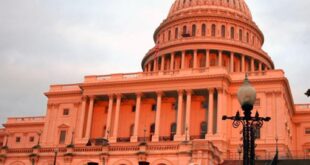 Working in a classroom on the frontline of the conflict between Israel and Hamas Islamists requires a lot more than good teaching skills.Palestinian teacher Awwad Abu Marasa often finds himself comforting a grieving child or using classes at his middle school in Beit Hanoun, northern Gaza, to counter intolerance in a society driven by fighting – both internal and with Israel.
Working in a classroom on the frontline of the conflict between Israel and Hamas Islamists requires a lot more than good teaching skills.Palestinian teacher Awwad Abu Marasa often finds himself comforting a grieving child or using classes at his middle school in Beit Hanoun, northern Gaza, to counter intolerance in a society driven by fighting – both internal and with Israel.
Many of his former pupils are already dead.
On the other side of the border, screeching sirens disrupt Atara Orenbuch’s computer science lessons in the Israeli town of Sderot, regularly sending the high school teacher and her pupils dashing for the school’s bomb shelter.
“Instead of only teaching computer science I also have to be a psychologist and a social worker,†said Orenbuch. “I hope I never have to be a nurse.â€
Armed groups in Gaza, which Hamas seized in June after fighting with Fateh faction, have frequently fired rockets into southern Israel since the Jewish state pulled troops and settlers out of the territory in 2005.
As Israeli and Palestinian leaders prepare to meet next week at Annapolis, Maryland, to discuss a peace deal, the strength of Hamas and the violence on Gaza’s border raise major questions on both sides about what might happen if Israel ends its occupation of the West Bank and Palestinians establish their own state.
Few salvoes from Gaza have been deadly, but they spark panic in towns like Sderot and have prompted Israel to label the enclave an “enemy entity†and tighten a blockade on movement in and out.
Peace conference
Ahead of Annapolis, some Israelis point to Gaza as proof that withdrawing from the West Bank would only unleash bloodshed.
Likewise, Gazans – who blame the Israeli border blockade for economic meltdown – are sceptical the conference will win them reprieve from poverty, Israeli raids and a travel embargo.
“Annapolis is nothing but a party attended by Arab leaders to say farewell to US President George Bush,†said Abu Marasa.
“Annapolis is not the magic solution to end the raids and the siege.†Israel and the West have tried to bolster Abbas and sideline Hamas, which they shun for refusing to renounce violence. The Islamists are not invited to Annapolis.
In Sderot, where giant concrete blocks stand at the entrance of her school, Orenbuch said all she wants is for her pupils to live and learn without the threat of attack.
“I hope… the Palestinian leaders will understand that we have a right to live here in Israel, quietly,†she said.
Abu Marasa, who dreams of an independent Palestine, wants the same for his pupils at Beit Hanoun’s United Nations school for refugees.
“I hope my students will live without injustice, and without fear,†he said. “I want them to focus on their lessons and not to be affected with what’s happening around them.â€
 Eurasia Press & News
Eurasia Press & News



